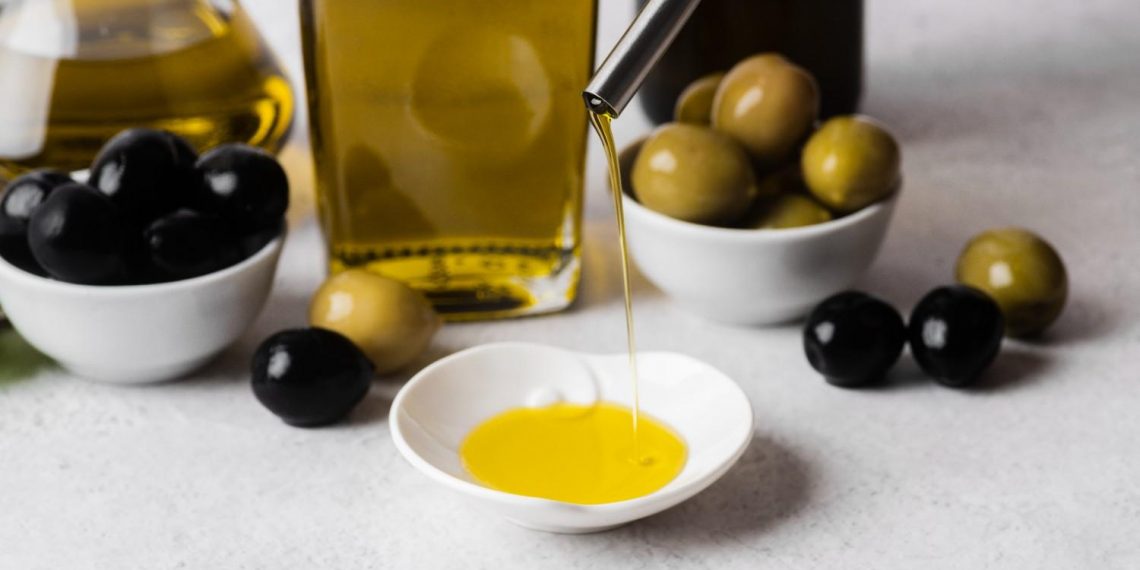Did you know that what you eat can have a direct impact on your ligaments? Yep, it’s true! While we often think about muscles and bones when it comes to nutrition, our ligaments deserve some love too. Ligaments, the connective tissues that hold our joints together, play a crucial role in our overall mobility and stability. So, how can we nurture them? You might be surprised to learn that olive oil, a staple in Mediterranean diets, is one of the best-kept secrets for ligament health. Let’s dive into five delicious ways to incorporate olive oil into your diet and give your ligaments the care they need.
Contents
1. Drizzle It on Fresh Salads
Why It Works
Salads are a fantastic way to load up on vitamins, minerals, and antioxidants. Adding olive oil not only enhances the flavor but also boosts your nutrient absorption. Studies suggest that olive oil can help reduce inflammation, which is key for maintaining healthy ligaments. This is largely due to its high content of monounsaturated fats and polyphenols, compounds that have anti-inflammatory properties (Calder, 2017).
How to Do It
- Choose Your Greens: Start with a base of dark leafy greens like spinach, kale, or arugula.
- Add Color: Toss in a variety of colorful veggies—think bell peppers, carrots, and cherry tomatoes.
- Make It Creamy: Add a scoop of avocado or some nuts for healthy fats.
- Dress It Up: Use a simple dressing of olive oil, balsamic vinegar, salt, and pepper. You can also throw in some mustard or honey for a twist.
Pros and Cons
Pros: Fresh salads are packed with nutrients, and the olive oil enhances the absorption of fat-soluble vitamins (A, D, E, K).
Cons: Be cautious with portion sizes; olive oil is calorie-dense, so a little goes a long way.
2. Sauté Your Vegetables
Why It Works
Sautéing veggies in olive oil not only adds flavor but also helps maintain their nutritional integrity. Olive oil has a high smoke point, making it a great choice for cooking. The heat can release beneficial compounds that promote ligament health.
How to Do It
- Pick Your Veggies: Broccoli, bell peppers, and zucchini are excellent choices.
- Heat It Up: Use a non-stick pan and heat olive oil over medium heat.
- Flavor It: Add garlic, herbs, or spices to elevate the dish.
- Cook Until Tender: Aim for crisp-tender veggies to preserve their nutrients.
Pros and Cons
Pros: Cooking veggies in olive oil can help to enhance their flavors and nutritional value.
Cons: Overcooking can lead to nutrient loss, so keep an eye on your pan!
3. Use It as a Marinade
Why It Works
Marinating meats or tofu in olive oil not only tenderizes the food but also infuses it with healthy fats. This is particularly beneficial for those who are active or recovering from injuries, as it provides the necessary nutrients to support ligament repair and health.
How to Do It
- Create Your Marinade: Mix olive oil with lemon juice, garlic, herbs, and spices.
- Marinate: Let your protein or veggies sit in the mixture for at least 30 minutes (or longer for more flavor).
- Cook It Up: Grill, bake, or sauté as desired.
Pros and Cons
Pros: Marinating enhances flavor and can help with digestion.
Cons: Some store-bought marinades can be high in sodium and preservatives, so homemade is usually better.
4. Bake with Olive Oil
Why It Works
Swapping out butter or other oils for olive oil in baking can be a game changer. Not only does it impart a delightful flavor, but it also adds health benefits. Some studies have shown that substituting olive oil for saturated fats can help reduce inflammation and improve overall health (Bach-Faig et al., 2011).
How to Do It
- Choose Your Recipe: Opt for muffins, bread, or even brownies.
- Substitution: Replace butter or other oils with an equal amount of olive oil.
- Add Flavor: Consider adding citrus zest or nuts for an extra boost.
Pros and Cons
Pros: Baking with olive oil can make your treats healthier without sacrificing taste.
Cons: The flavor of olive oil may not suit all recipes, so experiment carefully.
5. Whip Up a Dipping Sauce
Why It Works
Who doesn’t love a good dipping sauce? Olive oil can be the star of the show when paired with herbs, garlic, and spices. This not only makes for a delicious appetizer but also provides a concentrated source of healthy fats that can support ligament health.
How to Do It
- Basic Recipe: Combine olive oil with balsamic vinegar, minced garlic, and Italian herbs.
- Experiment: Try adding different flavors such as chili flakes, lemon zest, or even a touch of honey.
- Serve It Up: Pair with whole-grain bread or fresh veggies for dipping.
Pros and Cons
Pros: Dipping sauces can be very versatile and easy to customize.
Cons: Be mindful of portion sizes, as it’s easy to overindulge.
FAQs
1. How much olive oil should I consume for ligament health?
While there’s no one-size-fits-all answer, incorporating a few tablespoons of olive oil into your daily diet can be beneficial. It’s all about balance!
2. Can olive oil help with joint pain?
Some studies suggest that the anti-inflammatory properties of olive oil can help alleviate joint pain, but more research is needed for conclusive evidence.
3. Is all olive oil the same?
No, quality matters! Extra virgin olive oil is the best choice due to its higher nutrient content and lower acidity.
4. Can I use olive oil for frying?
Yes, but be mindful of the smoke point. It’s best to use it for sautéing or shallow frying rather than deep frying.
Conclusion
Incorporating olive oil into your diet can be a delicious and effective way to support your ligament health. From drizzling it over salads to using it in marinades and baking, the options are endless. Remember, while olive oil is a fantastic addition to your meals, it’s just one piece of the puzzle. A balanced diet, regular exercise, and proper hydration are all crucial for maintaining healthy ligaments.
So, why not start today? Next time you’re in the kitchen, reach for that bottle of olive oil and experiment with these tasty ideas. Your ligaments will thank you!
This article is for educational purposes only and is not a substitute for professional medical advice. Always consult a qualified healthcare provider before making changes to your health routine.
References
-
Bach-Faig, A., Bach, A., & Carrasco, J. (2011). Mediterranean diet and health: A systematic review. Nutrients, 3(12), 1515-1536. https://www.ncbi.nlm.nih.gov/pmc/articles/PMC3257631/
-
Calder, P. C. (2017). Omega-3 fatty acids and inflammatory processes: From molecules to man. Biochemical Society Transactions, 45(5), 1105-1115. https://doi.org/10.1042/BST20170031
-
Harvard Health Publishing. (n.d.). The health benefits of olive oil. https://www.health.harvard.edu/staying-healthy/the-health-benefits-of-olive-oil
Get Your FREE Natural Health Guide!
Subscribe now and receive our exclusive ebook packed with natural health tips, practical wellness advice, and easy lifestyle changes — delivered straight to your inbox.















